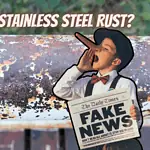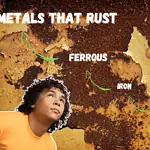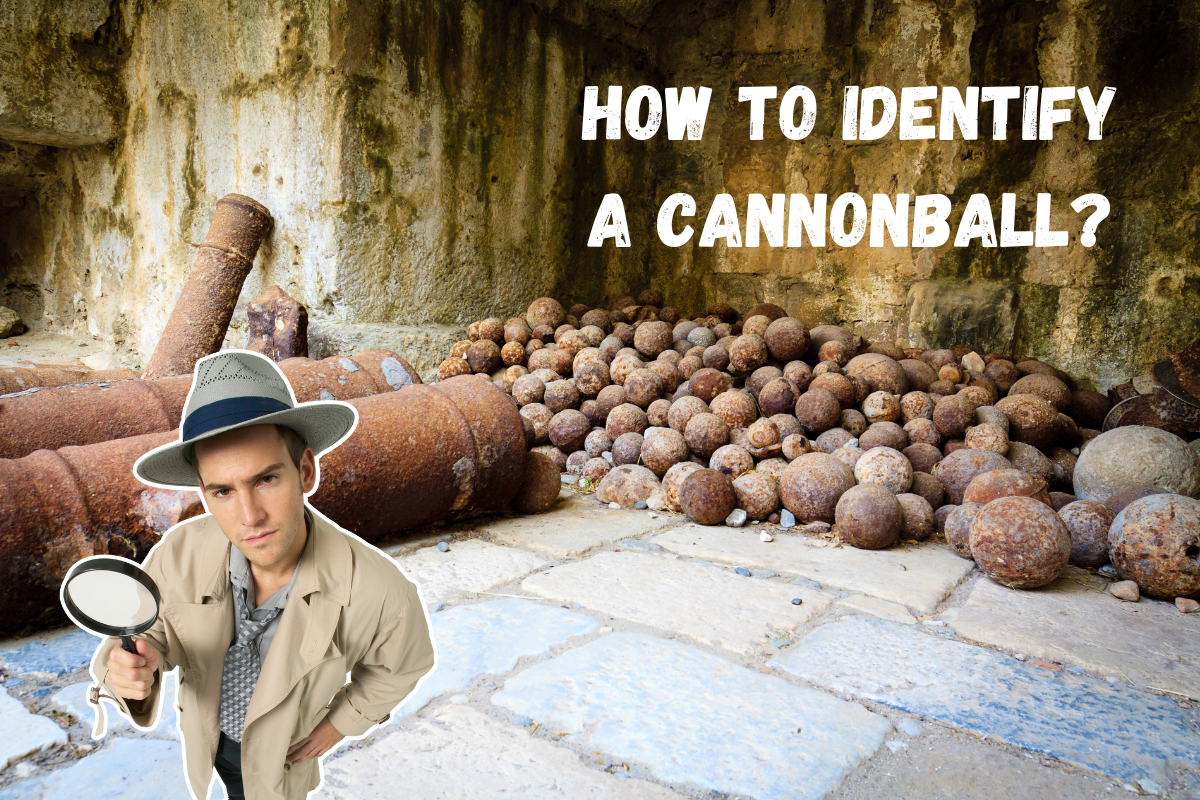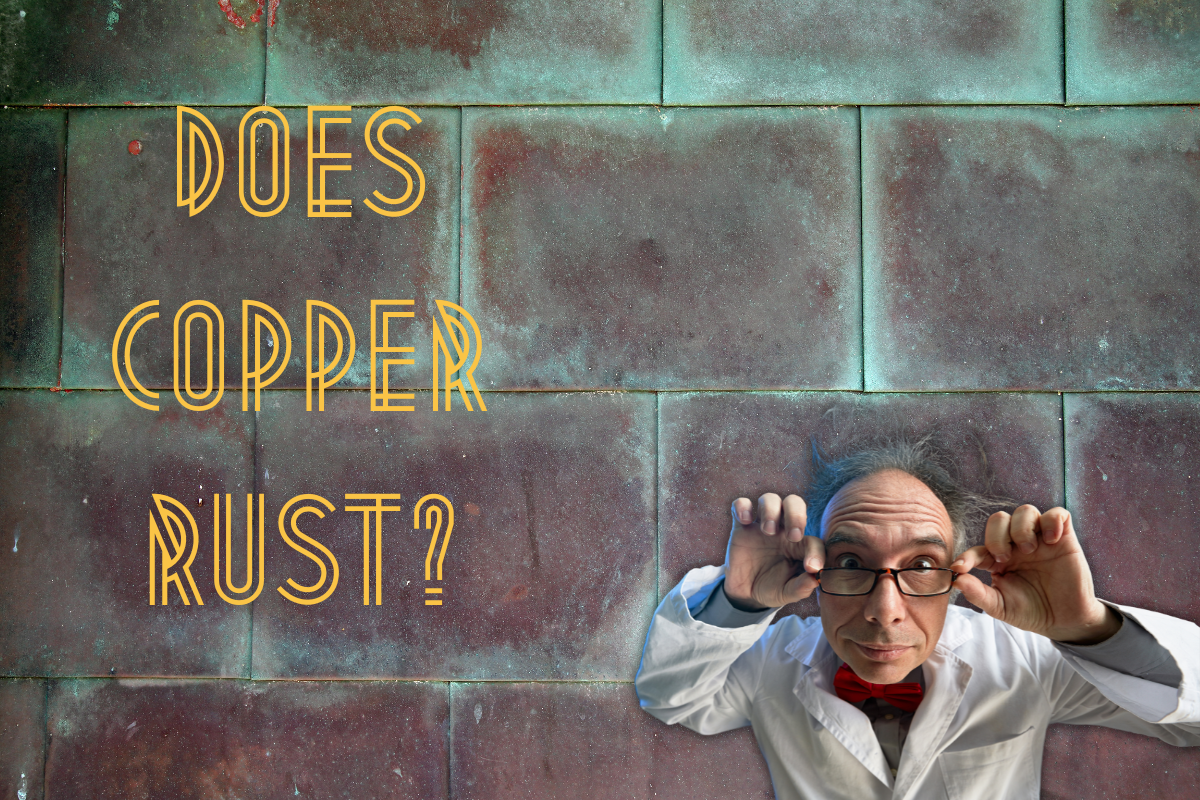How often have you hunted for new relics and found a rusty yet salvageable piece of history? I know I have. My oldest friend and I spent a weekend on his uncle’s farm in Maryland last summer. Between the bits of old mechanical parts and forgotten nails, we bagged ourselves a couple of old buttons, worn-down coins, and an actual cannonball!
I’m sure you’ve been there. You find a really cool treasure, and while the rust adds some character, you’re tempted to clean it off if you can.
Well, I cover that in a different article. But it got me wondering about my finds and their condition. Is rust always a given, or is a perfectly kept metal in the cards for us?
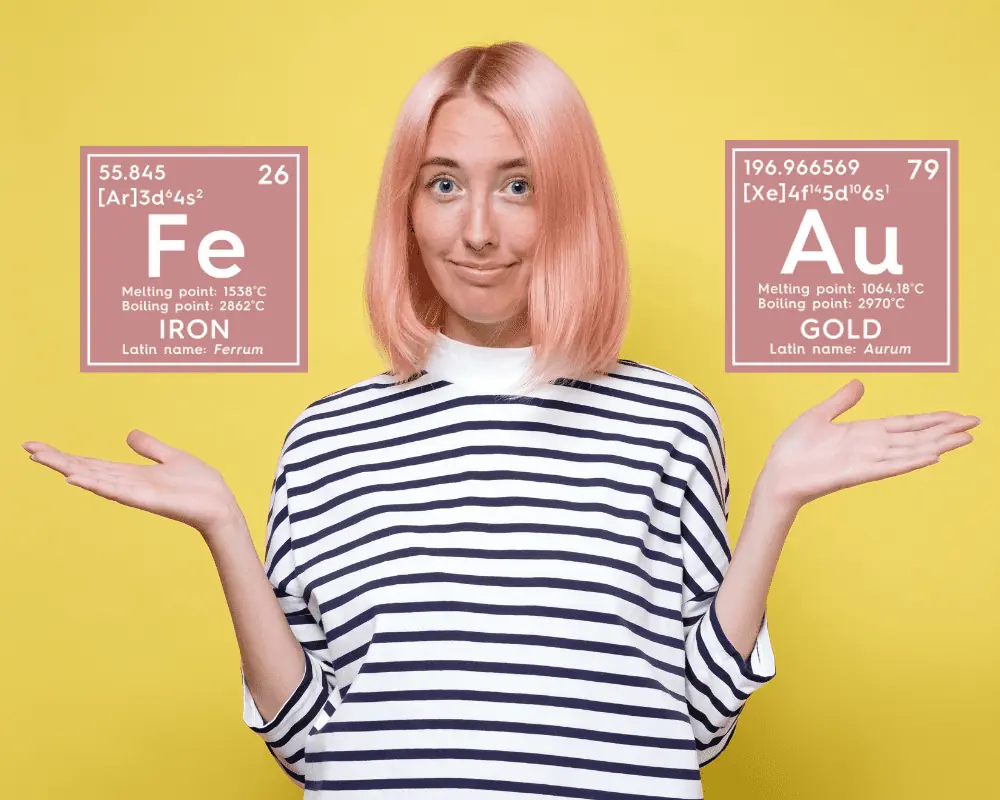
Lucky for you, I did the leg work, and I’m here to give you the details.
What Metal Does Not Rust?
Now, some caveats come along with rust, and we’ll cover that. But here’s a generalistic approach to your answer.
The 14 metal materials that do not rust are:
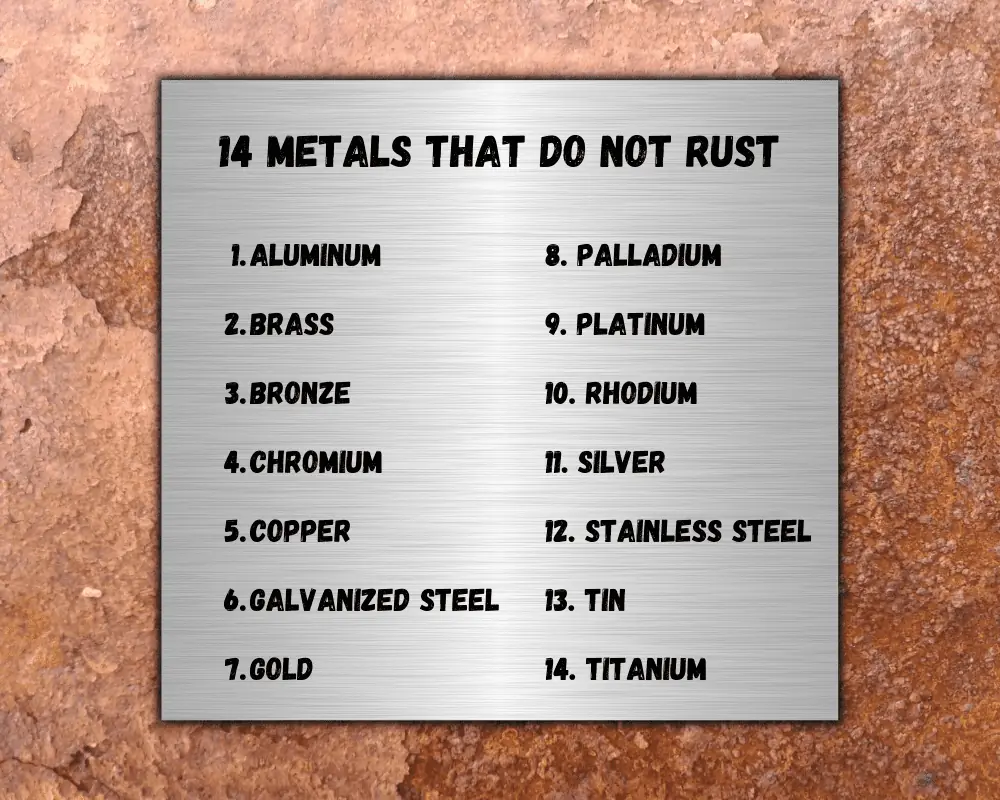
What Is Rust?
Rust is a reddish-orange crispy substance that appears on metal objects exposed to air and moisture. It’s a type of corrosion that occurs in iron and steel, making metal objects weaker and can cause them to break or fall apart over time.
This might sound crazy to you, especially if you’ve read any of my other articles. I mean, I recently wrote a post where I detailed how stainless steel rusts over time. So what gives, Chris?
Well, this is that caveat I was talking about.
You probably know that most metals aren’t what they appear to be and consist of a mixture of alloys to give them particular properties. And iron and steel are pretty standard in most alloy metals.
Needless to say, the 14 metals that do not rust I mentioned need some clarification.
But before that, let’s get the facts straight about what we’re discussing. Or what we aren’t.
Rust Vs. Corrosion
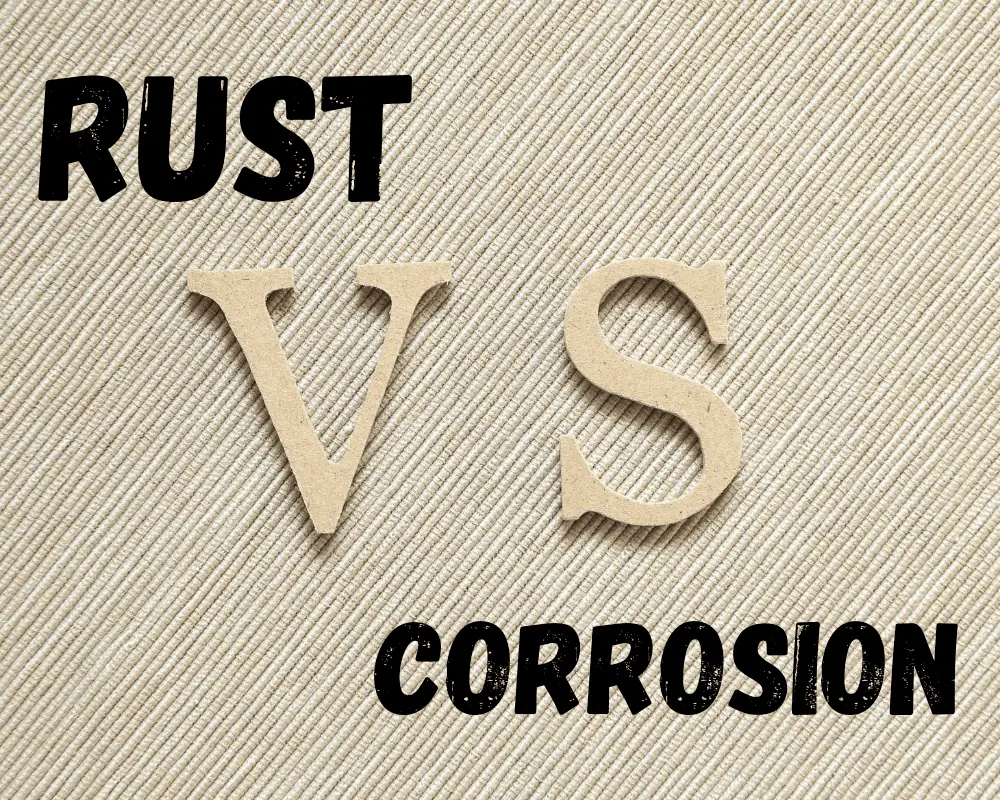
The confusing thing about rust is that many people mistake other forms of corrosion for the same thing.
Rust and corrosion are related, but they are not the same thing.
Corrosion is the general term used to describe the deterioration of a material, in this case, metal, due to a reaction with its environment. It can happen in various forms and can be caused by multiple factors, such as exposure to moisture, chemicals, or other agents.
Rust, specifically, is just one type of corrosion that occurs in iron, steel, and their alloys when exposed to moisture and oxygen.
For example, when corrosion sets in, lead bullets will turn a shade of white. This is another form of oxidation categorized as a corrosive substance, but it is not rust.
The same thing can be said about silver coins found when metal detecting. Pure silver lacks the iron content to cause rusting, but silver can corrode with the right conditions. Instead of rust, silver forms a natural patina, a blackish-brown tarnish.
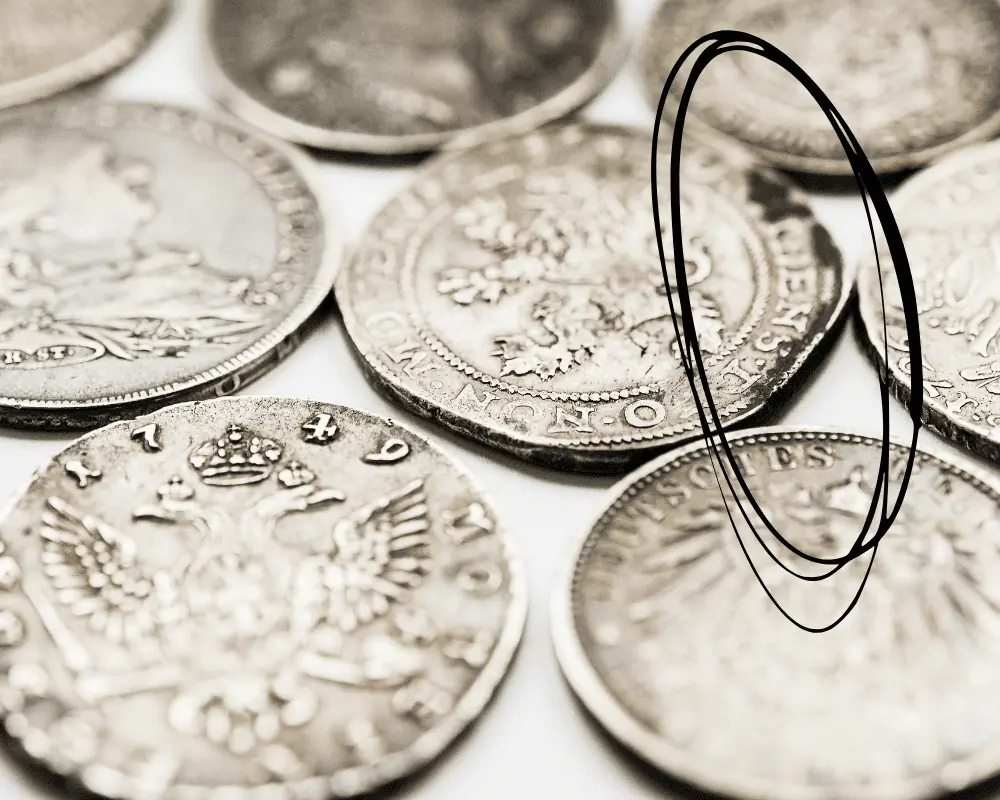
I just want to make it clear to you that when we’re talking about these metals that don’t rust, I don’t want you to think they’re free of any corrosive reaction.
What Metal Will Not Rust? 14 Metal Materials
Now that we’ve got all the ifs, and, or buts out of the way, let’s get to the 14 metal materials that will not rust.
Aluminum
Aluminum does not rust in the traditional sense since the iron components needed are not present.
Aluminum forms a thin oxide layer on its surface when exposed to air, which protects it from further oxidation. This oxide layer is transparent and colorless, and it helps to prevent aluminum from corroding.
However, aluminum can corrode under certain conditions, such as high heat, high humidity, and exposure to certain chemicals. But the aluminum oxide that forms is not as brittle or damaging as rust, so it does not deplete aluminum’s integrity like rust in iron and steel.
Brass
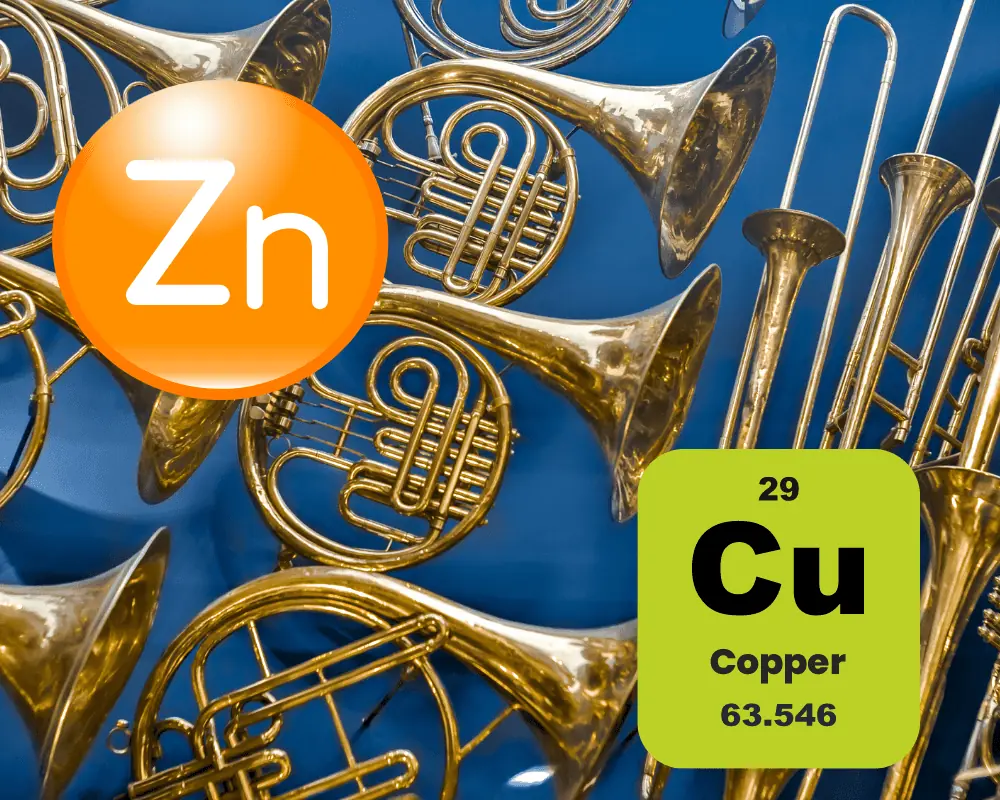
Just like aluminum, brass will not rust, but it can corrode. Brass is an alloy of copper and zinc, primarily. The zinc in brass acts as a barrier to prevent the copper from coming into contact with water and oxygen, which are the elements that cause rust.
So, brass is less likely to corrode than copper and zinc alone.
The type of corrosion common in brass will appear as a greenish patina coating when exposed to periods of water and oxygen. And just like aluminum, this form of corrosion doesn’t damage the composition of brass in the same sense as iron oxide will.
Bronze
While brass is made of copper and zinc, bronze is an alloy of copper and tin. And like zinc, tin provides that extra layer of corrosive resistance. That, with the lack of iron content, is why bronze will not rust.
Instead, when bronze corrodes due to prolonged exposure to moisture, it forms an additional layer of tarnish, leaving the bronze surface intact.
Chromium
Chromium is what’s known as a transition metal, which is an element found on the periodic table and often used in alloys because of its desirable properties. In this instance, chromium is desirable because it is rust-resistant. It’s the property that makes stainless steel “stainless.”
What’s impressive about chromium is that it can regenerate independently.
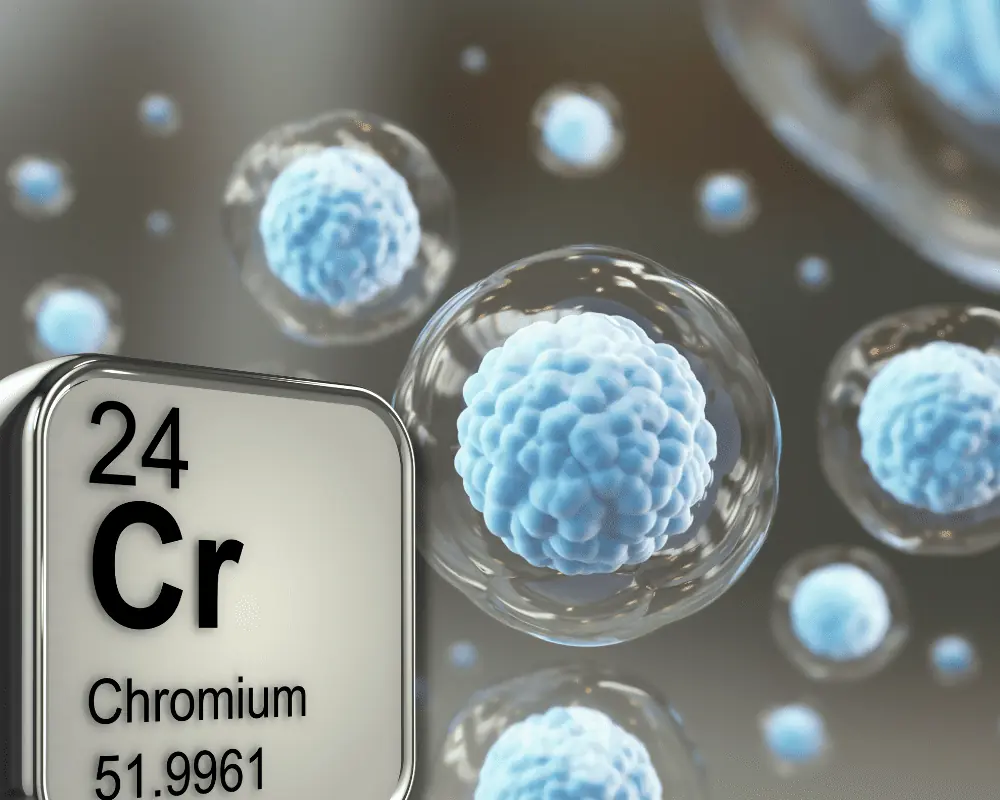
When exposed to air, chromium forms a thin oxide layer on its surface, protecting it from rusting. This layer is called “chromium oxide,” which is highly stable and not prone to decay like rust.
And when it’s damaged, it reforms on its own.
Copper
Like the other metals we’ve discussed, copper won’t rust because it lacks the iron needed for this sort of decomposition.
Instead of rusting, copper forms a bright greenish patina above the surface metal, a prized characteristic of metal detectorists and collectors. The patina, while deemed corrosive, is responsible for protecting the integrity of the surface details.
Of course, if you want, you can prevent and even clean copper items of their natural oxide. But you risk damaging a precious collectible if you aren’t careful.
Galvanized Steel
When steel has been manufactured and purposefully coated with zinc for its protective properties, it becomes galvanized steel. Steel is highly vulnerable to corrosion, but adding zinc, another transition metal, will fight off the elements for half a century or more.
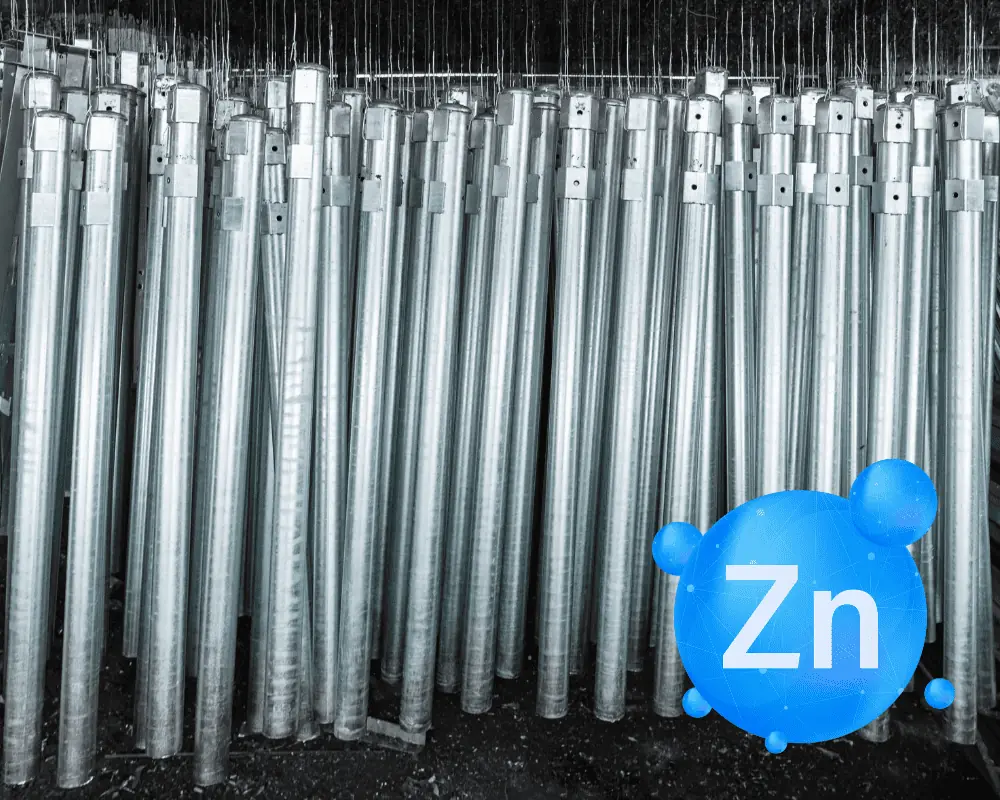
In short, galvanized steel won’t rust because the zinc acts as a sacrificial anode. So even if the protective zinc layer is scratched and exposes the underlying steel to water or air, zinc takes the damage, saving the steel from harm.
Gold
Gold, a non-ferrous metal, does not contain iron and is not affected by rust. Gold is also a very stable metal and does not readily react with other elements. It is also not affected by most acids and does not tarnish.
Further, gold doesn’t corrode under normal conditions and will last for centuries without tarnishing.
If you have some gold showing signs of corrosion, it’s likely a lower karat of gold, which contains other metals in its makeup.
Palladium
Palladium is a rare chemical element in the platinum family and appears as a silvery-white metal used in manufacturing electronics, car parts, dental implants, and jewelry.
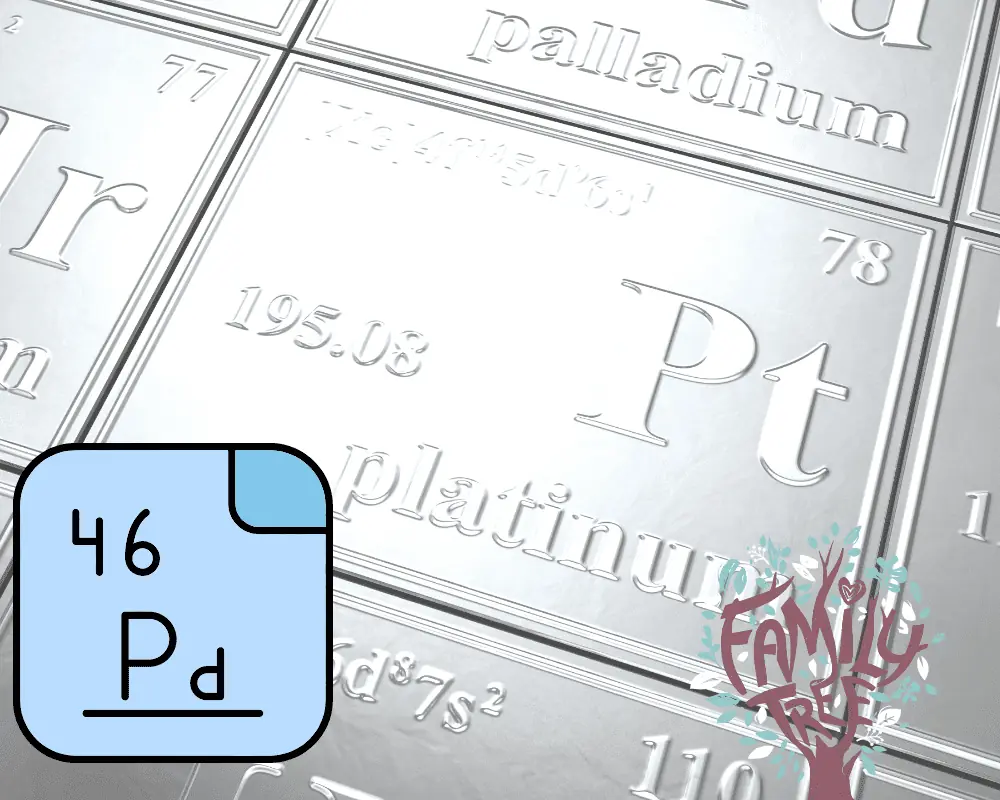
Like gold, palladium will not rust and is generally resistant to corrosion, mainly due to its low reactivity, unique crystal structure, and other natural attributes.
Platinum
Platinum shares the same resistance to rust as palladium.
Being a 95% pure metal and less reactive than most other metals, platinum is safe from tarnishing, rusting, or developing any corrosive oxide.
Rhodium
Rhodium is yet another relative of the platinum family and shares the same properties that make them resistant to rust.
While these transition metals are similar in their opposition to corrosion, there are a few differences.
One significant difference is their rarity. Rhodium is much rarer than palladium and is about 10 times more expensive due to its increased toughness and durability. In addition, rhodium is a more brilliant shade of silvery-white compared to its familial palladium.
Silver
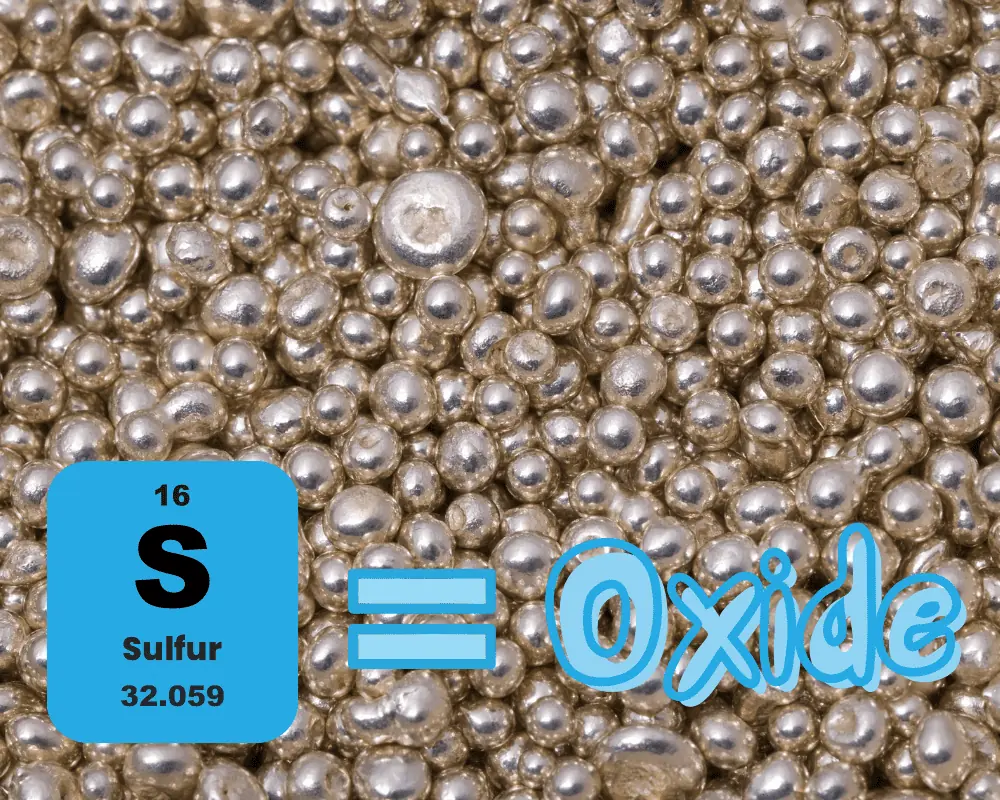
Pure silver will not rust, but an oxide layer (patina) will develop on the surface metal when exposed to sulfur compounds.
Usually, the patina is yellow or another color before transitioning into a blackish substance, referred to as black sulfide.
Stainless Steel
Stainless steel is an alloy protected from rust because its chromium content naturally self-heals when needed. However, hundreds of stainless steel variations exist, and some grades are more vulnerable than others.
So while even the most fortified versions of stainless steel generally do not rust, the depletion of chromium or prolonged exposure to chloride will eventually give in to rusting.
Tin
Tin, a post-transition metal, is somewhat like zinc and is an effective protective layer for other metals. While zinc can eventually rust, tin does not because it has no trace of iron content.
However, tin is susceptible to other types of corrosion when interacting with acids and alkalis. And like any other rust-resistant metal, mixing tin with other alloys, such as iron, will make it vulnerable to rust, like pewter, for instance.
Titanium
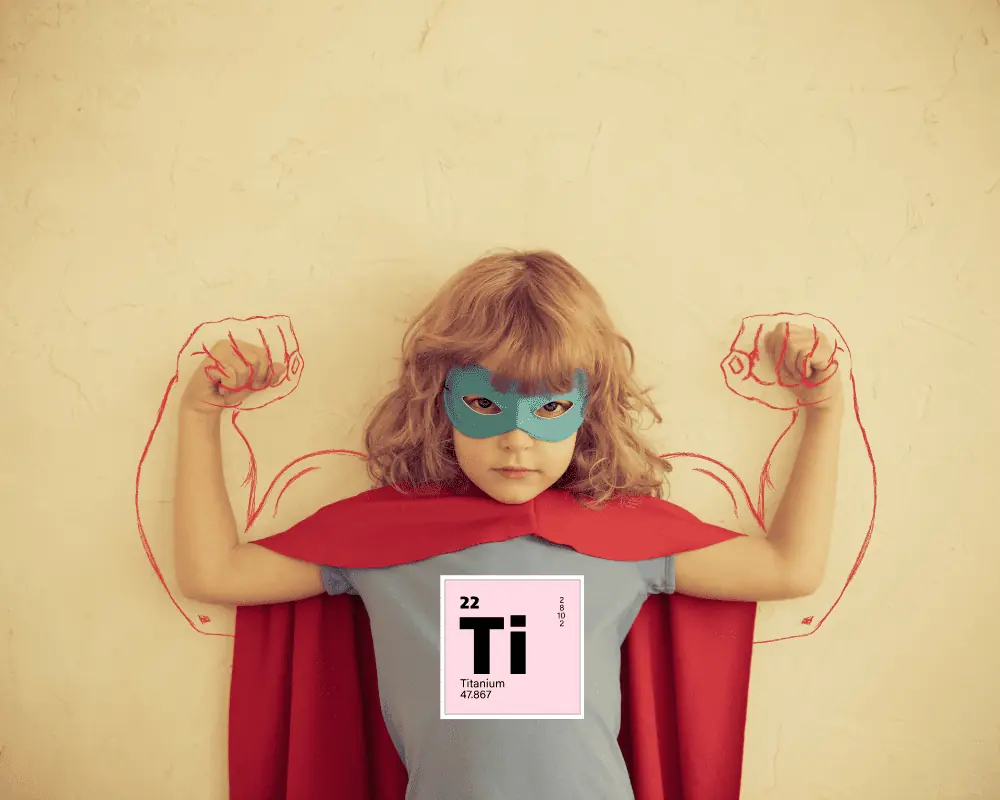
Titanium is a powerful metal that fortifies itself against the possibility of rusting thanks to its titanium oxide barricade, which forms when this metal is presented with harsh corrosive generating environments.
Now, this is true for pure titanium, but when other metals are introduced, and oxygen is present, titanium alloys will be capable of rusting.
Let’s Talk About Weathering Steel
I’ve seen some say that weathering steel made by COR-TEN does not rust. I can’t include it in my list because that’s not technically true. COR-TEN weathering steel is made to effectively prevent corrosion and is quite successful at it.
But in order for this steel alloy to protect itself, it must rust first. Once weathering steel rusts, it forms a protective coat that inhibits any future rusting. It’s actually impressive, but to say it doesn’t rust would be misleading.
Remember the Caveat

So there you have it. These 14 metals will not rust. But remember, when alloys are created, and you start introducing other metals into the equation, the possibility of rusting is more likely.
This is why we find a lot of relics and coins with their fair share of rust. But don’t discount the chance of finding one of these non-ferrous pure metals on your next adventure. They’re out there. It just takes some persistence and patience to find them.

